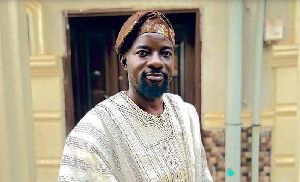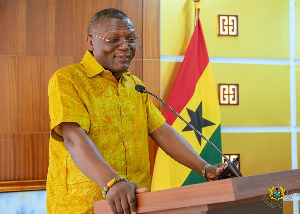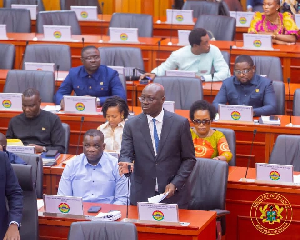Sunyani, Oct. 14, GNA - Mr. Cyril Acolatse, member of the National Media Commission on Monday stated in Sunyani that a Right to Information Law would drastically stem the overly speculative and sensational journalism in the country.
Indeed, civic and responsible journalism, the cultivation of well-informed populace and the promotion of a vibrant democracy warrant such a law in Ghana, he said.
Mr Acolatse was delivering a paper on, "The Right to Information and the Need for Right to Information Law in Ghana" at a public seminar on the Right to Information organized by the Accra Office of Commonwealth Human Rights Initiative, an NGO, in collaboration with the British Council.
The seminar was one of a series being conducted throughout the country to collate public views on the Right to Information Act, which, among others is meant to provide for the right of access to information to enable an individual to have access to personal information held by a government agency or a private body which relates to the individual.
The Act will also protect personal information held by government agency or a private body from being disclosed in order to preserve the person's personal privacy.
Mr. Acolatse, quoting extensively foreign political theorists on the right of the people to information for national development, however, noted that although the United Nations, soon after its establishment in 1945 recognised freedom of information as a fundamental human right, very few member of the Commonwealth could boast of right to information regimes.
He emphasized that Ghana needs the law that would enable people to get information, which is important to them, lay down clearly that the government and public bodies are under obligation to give information to give information to anyone who asks for it and to provide for an easy system of storing information and retrieving it.
We are advocating the right to information law in Ghana because we consider it a lawful claim or morally just not to have government and its officials keep secrets from the public except those absolutely necessary to the security and well being of government itself and the state, he said.
Mr Yaw Boadu-Ayeboafoh, Editor of the Daily Graphic, in his paper on 'Free Flow of Information not only from or for Media' stated that if governments were to be held accountable, the people must have information about what alternative actions were available and what were the results of policy choices.
He observed: "Democracy thrives upon informed and knowledgeable citizens, who have access to a wide range of information, which enables them to participate fully in the affairs of their society. "Democracy is thus built and sustained on the energies of an articulate people, who can have unrestricted access to ideas, data, views, opinions and even speculation."
The Editor stressed that this was important because open debate led to the establishment of greater truths and more informed decisions than where dissent was stifled.
Emphasising that the media serve as watchdogs over government and other powerful institutions, both public and private, Mr Boadu-Ayeboafoh noted that the effective discharge of this media responsibility commenced with the generation of interest, awareness, knowledge and understanding.
He said a freedom of information law would, however, protect the people from harassment by media personnel for information, "which to all intents and purposes, is private, but which could be leaked to them".
A freedom of information law is essential for democracy because good governance thrives in an atmosphere of openness, transparency and pluralism, Mr Boadu-Ayeboafoh added.
In an opening address, Mr Yaw Adjei-Duffour, Deputy Brong Ahafo Regional Minister lauded the Right to Information Law, noting that "information plays a vital role in all our activities and endeavours, be they political, economic or social as all decisions or conclusions we take depend on to a large extent on the quality of information available to us".
He emphasized that, "in a society where some information is withheld and those thought to be harmless or unimportant are released, the implications are clear; transparency is sacrificed leading to likely abuse and corruption."
The Deputy Minister noted that to a large extent the free flow of information made it possible for the Electoral Commission to take certain remedial measures and this, in a way, made the electoral process more transparent.
Consequently, the public by and large, perceived the 2000 elections as free and fair, he added.
Mr. Adjei-Duffour expressed the hope that the participants at the seminar would hold a thorough discussion in order to come out with recommendations for the modification, review or repeal of existing laws, regulations and procedures that restricted access to information and thus run counter to the constitutional provision for easy access to information.
Dr. Anthony Bonnah-Koomson, a senior lecturer at the University of Ghana and a member of the National Media Commission presented an overview of the draft bill on Right to Information, whilst Justice Mariamah Owusu, a High Court Judge in Sunyani gave the Judge's perspective on the Law.
General News of Tuesday, 14 October 2003
Source: GNA
Media commission official speaks on Rights to Information Law
Entertainment











